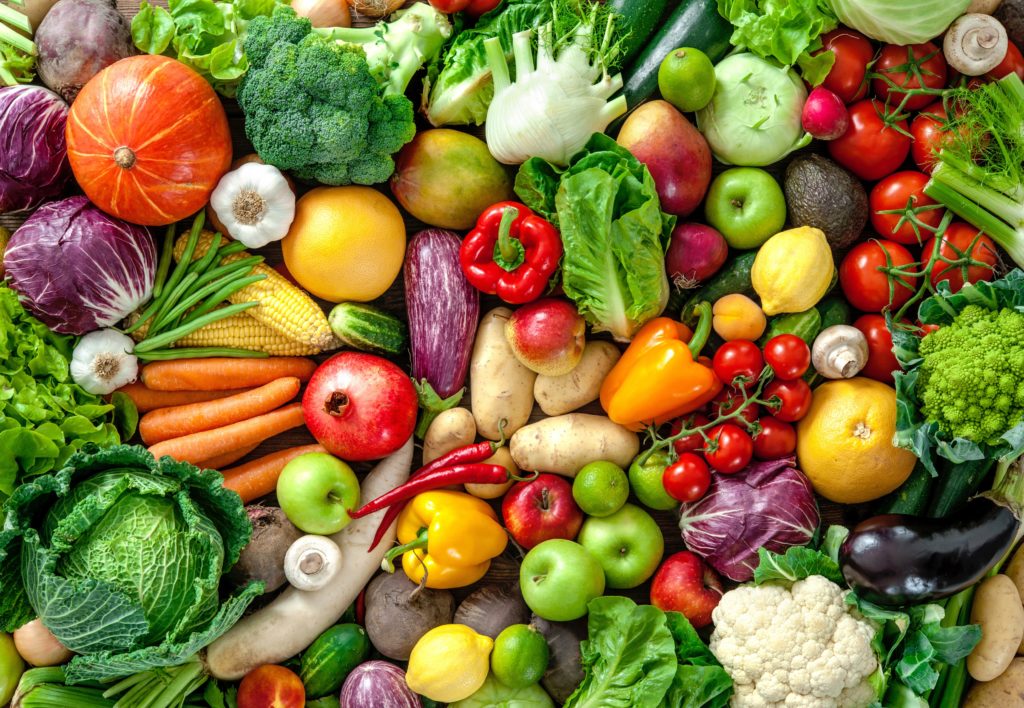Import Regulation by Agricultural Marketing Service
USDA Agricultural Marketing Service
Import Regulation by USDA Agricultural Marketing Service (AMS)
Section 8e of the Agricultural Marketing Agreement Act of 1937 (AMAA) applies to specific fruit, vegetable, and specialty crop imports into the United States. The law requires imported products to meet the same or comparable grade, size, quality and maturity standards as domestic products covered by Federal marketing orders.
It is the responsibility of the importer of record to have each lot (shipment) imported inspected for size, grade, and quality to receive a United States’ USDA/AMS inspection certificate by AMS. The importer is defined as the party responsible for clearing the goods through customs and could be the shipper, the receiver, or a third party such as a broker or attorney of record.
Please note that a quality inspection and release issued by AMS is a different inspection and release than that issued by the Animal and Plant Health Inspection Service.
In-Depth Coverage: USDA-Regulated Products
- Importing USDA-Regulated Food Products
- Import Regulation by USDA Agricultural Marketing Service (AMS)
- Food Products – FDA or USDA Regulated
- Country of Origin Labeling
- Importing Animals, Animal Products, and Biologics into the US
- Importing Meat, Poultry, and Egg Products into the US
- Labeling and Marking of Imported Meat, Poultry, and Egg Products
- USDA National Organic Program (NOP)
- Agricultural Safeguards and USDA Licensing
Section 8e applies to these specific products:
- Avocados
- Dates (other than dates for processing)
- Hazelnuts (filberts)
- Grapefruit
- Table grapes
- Kiwifruit
- Olives (other than Spanish-style)
- Onions
- Oranges
- Irish potatoes
- Pistachios
- Raisins
- Tomatoes
- Walnuts
For some Section 8e commodities, foreign production occurs in a growing season that is different from that in the United States. This means that the foreign production complements U.S. production. However, imports of a commodity are regulated by Section 8e only during the period of time that the domestic commodity is also being shipped and regulated.
In-Depth Coverage: Marketing and Advertising Compliance
- Federal Trade Commission (FTC) Advertising Rules
- Made in USA Standard
- FTC Regulation on Environmental Claims
- Adverting and Marketing on the Internet
- Label Claims for Conventional Foods and Dietary Supplements
- Dietary Supplement Advertising: What is FTC's Truth-in-Advertising Law?
- USDA Country of Origin Labeling (COOL)
- FTC Rules & Regulations on Food Advertisement
Any person who violates any provision of Section 8e, or any regulation, is subject to one or more of the following penalties, which are set forth in the AMAA.
- A civil penalty of $2,750 per violation, each day the violation continues
- Request by U.S. Customs and Border Protection Service for re-delivery of product and associated fines
- Denied entry for future shipments
- Civil forfeiture of the value of the import
- Notification to other agencies with related regulations
- A press release of the results of any violation to include the company’s name and the incurred penalty
If a shipment failed the Section 8e inspection, the importer may take one or more of the actions listed in: Actions and Proper Documentation
Shell Eggs
AMS routinely inspects egg imports for compliance with U.S. quality standards, including storage and transportation temperature requirements.
In-Depth Coverage: Importing Food Products
- What is FDA Food Safety Modernization Act (FSMA)?
- Prior Notice of Imported Foods
- FDA Food Facility Registration
- Risk-Based Preventive Controls for Human Food
- Risk-Based Preventive Control for Animal Food
- Protect Food against Intentional Adulteration
- What is Foreign Supplier Verification Program (FSVP)?
- What is FSMA Produce Safety Rule?
Importing Organic Products into the U.S.
Organic agriculture is a fast-growing sector in U.S. agriculture, creating jobs, economic growth, and entrepreneurial opportunities. The National Organic Program (NOP), part of USDA’s Agricultural Marketing Service (AMS), establishes international organic import and export policies to facilitate trade and expand market opportunities for certified organic farms and businesses around the world.
Imported organic products must be certified to one of the following standards to be sold in the United States:
- The USDA organic regulations – USDA authorizes organizations around the world to certify farms and businesses to the USDA organic regulations.
- An authorized international standard – The U.S. has established trade partnerships with the following international countries.
Factsheet: Importing Organic Products into the U.S.
In-Depth Coverage: Importing Cosmetics
Country of Origin Labeling (COOL)
Country of Origin Labeling (COOL) is a labeling law that requires retailers, such as full-line grocery stores, supermarkets and club warehouse stores, to notify their customers with information regarding the source of certain foods. Food products covered by the law include muscle cut and ground meats: lamb, goat, and chicken; wild and farm-raised fish and shellfish; fresh and frozen fruits and vegetables; peanuts, pecans, and macadamia nuts; and ginseng. Agriculture Marketing Service (AMS) of the USDA is responsible for the administration and enforcement of COOL.
Entry Filing Process
Since July 23, 2016, CBP has required all importers to submit their entry filings through the ACE as part of a government-wide deployment of the new International Trade Data System (ITDS). The ACE electronic interface is accelerating the processing of entry filings for all importers by automating clearance processes by all government agencies, including AMS. To accomplish this, CBP requires each government agency to electronically message back to ACE with the status of each entry filing. With ACE, importers will be able to determine the entry status under AMS or any other Agency’s requirements that determine release by CBP for entry into the United States. Presenting your products for AMS inspection segregated by Customs Entry Number allows AMS to notify CBP so that your products can be released into the channels of commerce quickly and efficiently.
Beginning September 1, 2016, all imported commodities subject to AMS Section 8e regulation must be presented for inspection to AMS or its Federal-State partners as separate lots that correspond to each individual Customs Entry Number. This requirement aligns the practices in all ports of entry in the United States and will help AMS expedite its review and release of shipments from a “Hold Intact” status to a “May Proceed” status, allowing product movement to market in a speedy and efficient manner. This improvement is a result of AMS transitioning to a new program that utilizes data generated through the U.S. Customs and Border Protection (CBP) Automated Commercial Environment (ACE) to monitor compliance with the Section 8e regulations on imported agricultural commodities.
In-Depth Coverage: Country of Origin
- Country of Origin of Imported Merchandise
- Customs Ruling: Country of Origin
- Country of Origin: Food Products
- Country of Origin: Chemical and Pharmaceutical Products
- Country of Origin & Country of Manufacture: CBP vs. FDA
- Country of Origin: Substantial Transformation or Country of Assembly Test
- Country of Origin and Free Trade Agreement
- Country of Origin and Section 301
Quick Link To U.S. Customs & Import Requirements
Guidance on customs & logistics solution for traditional and e-commerce importers and exporters
Importer Security Filing (ISF)
An ISF is required when cargo (ocean only) laden on vessel at a foreign port is destined for shipment to the U.S. Under ISF rule, some importing information and details regarding cargo must be transmitted to the CBP at least 24 hours before goods are loaded onto the vessel.
Freight Forwarding
Looking for a freight forwarding partner? To move your cargo from its current location through customs to its final destination we will partner with you to find the best way for your business. Whatever your transportation, logistics or customs clearance needs, we will do our best to customize a solution for your needs.
Customs Clearance
All goods imported into the U.S. are required to be declared to CBP. Our customs broker will help you stay in compliance with customs laws and regulations and clear your goods quickly and efficiently with our electronic Automated Commercial Environment (ACE) and Automated Broker Interface (ABI) Single Window System.
Warehousing & Distribution
Our warehouse facility offers great potential for serving as a regional hub with over 145,000 SF storage capacity close to Los Angeles Airport & Los Angeles/Long Beach Sea port. With our extensive experience in freight services, your import/export cargo will be handled quickly and effectively.
Section 321 Entry
Section 321 entry allows importing free of duty and tax for shipments imported by one person on one day having a fair retail value in the country of shipment not more than $800. We provide our resident and non-resident clients with dedicated ACE eManifest solutions for Section 321 entry of all modes of transportation.
Non-resident Importer Program
If you want to sell your products in U.S. marketplaces, but you are a business owner located outside of the U.S. and do not have an entity or presence in the U.S., you need to be established as a Foreign Importer of Record before your products can be imported into the U.S. We can help you.
E-Commerce
The Internet has made it easy to find and purchase items from almost anywhere in the world. Our e-commerce experts will help you find the right solution for your international transportation, customs clearance, and delivery to your final destination. We also provide value-added repackaging, warehousing and distribution services.
Customs Clearance and Import Requirements
- Entry of Imported Merchandise
- What is Section 321 Entry?
- What is Automated Commercial Environment (ACE)
- What is an Automated Broker Interface (ABI)?
- Who is Ultimate Consignee?
- What is Non-Resident Importer Program?
- Country of Origin of Imported Merchandise
- What is the Country of Assembly?
- What is the FDA's Country of Manufacture?
- Marking of Country of Origin on U.S. Imports
- What is Customs Bond?
- Reconciliation Prototype and Bond Rider
- Who Needs a Customs Broker?
- What is Customs Ruling Program?
- Classification of Imported Goods
- How is imported merchandise appraised?
- What are Import Quotas?
- What are Trade Remedy Duties?
- Antidumping Duty (AD) and Countervailing Duty (CVD)
- What is Foreign Trade Zone (FTZ)?
- What is Importer Security Filing (ISF)?
- What is Temporary Importation under Bond (TIB)
- What is In-Bond Process?
FDA-Regulated Products and Import Requirements
- What is Food Safety Modernization Act (FSMA)?
- Prior Notice of Imported Foods
- Food Facility Registration
- Risk-Based Preventive Controls for Human Food
- Risk-Based Preventive Control for Animal Food
- Standards for the Growing, Harvesting, Packing, and Holding of Produce for Human Consumption
- What is Foreign Supplier Verification Program (FSVP)?
- Protect Food against Intentional Adulteration
- FDA Regulated Product in Foreign Trade Zone (FTZ)
- Entry Review Process for FDA Regulated Products
- Country of Origin VS Country of Manufacture
- Foods Regulated by FDA or USDA: What is the Difference?
- Label and Labeling Claims for Conventional Food and Dietary Supplements
- What is USDA Country of Origin Labeling (COOL)?
- Import for Export of FDA Regulated Products
- FDA Regulated Products in Personal Baggage or Sending by Mail or Courier
- International Mail Facility (IMF) and FDA Regulation
- Importing Biological Product Regulated by CBER
- Importing Cosmetics and Voluntary Cosmetic Registration Program (VCRP)
- Importing Drugs into the U.S.
- Importing OTC Drugs into the U.S.
- Importing Veterinary Drugs into the U.S.
- Importing Tobacco Products into the U.S.
- Importing Medical Devices into the U.S
- Importing Food Products into he U.S.
- Importing Radiation-Emitting Products into the U.S.


























